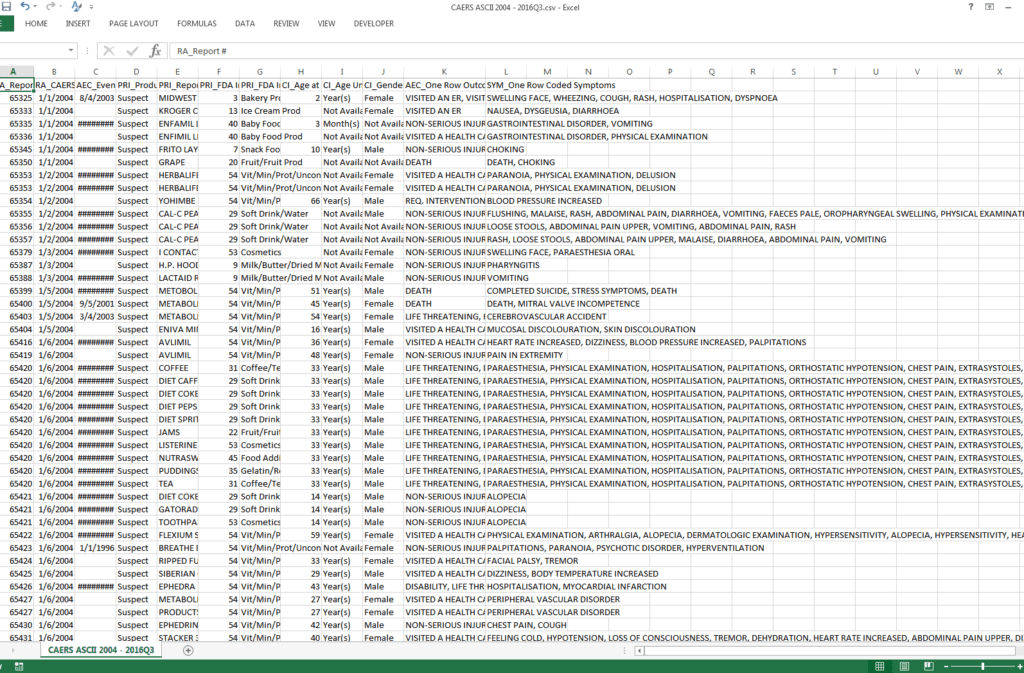FDA Adverse-Event Reports Go Public
Years of adverse-event reports documenting problems associated with compromised food, dangerous drugs and harmful cosmetics are now available to the public. The information can be obtained, free of charge, via a downloadable report to be updated quarterly. The data currently spans twelve years.
Advocacy Groups Find Adverse-Event Reports Helpful for Protecting Consumers
Business leaders, consumer groups and law firms are hailing the move as an important next step in the safety of Americans.
“It’s a go-to place,” Michael Jacobson, of the Center for Science in the Public Interest, told Bloomberg BNA in an article titled “FDA Food, Cosmetics Data Boon for Attorneys, Companies.” “If somebody, like a poison-control center, has concerns, they can go and see if there happen to be some reports.”
The advocacy organization conducts research on alcohol, food, the environment and personal health and well-being.
“I would use it to look for possible problems,” Jacobson said of the data.
The data involves saleable items regulated by the U.S. Food and Drug Administration’s Center for Food Safety and Applied Nutrition. It is compiled in a Microsoft Excel spreadsheet containing 76,964 adverse-event reports.
“The data files are being made publicly available on FDA’s Web site to improve transparency about adverse event reports involving CFSAN-regulated products and increase awareness about reporting these adverse events to FDA,” according to an agency notice.

This is what the newly released data from the CAERS adverse event system looks like.
Adverse-Events Reports Sometimes Mandatory, Sometimes Generated Voluntarily
Adverse-event reports are made by both consumers (family members and patients) and healthcare providers (pharmacists and physicians) on a voluntary basis. The information previously was available solely through the Freedom of Information Act. It still can be obtained that way but more easily can be saved to one’s computer. Such post-market surveillance – the FDA does not approve certain foods or cosmetics before they show up on store shelves – could be considered critical, even life-saving.
“The goal of CAERS (CFSAN Adverse Event Reporting System) is to improve consumer protection by providing FDA with information from which we may be able to quickly identify situations in which the data provide a signal that a particular product may be harmful and should be investigated further,” according to the agency notice.
When a manufacturer, for example, a drugmaker, receives an adverse-event report directly, it is required by law to send that report to the FDA so it can be entered into the system. Information about voluntary and mandatory reporting can be found on the “Reporting Serious Problems to FDA” Web site.
In addition to the Center for Science in the Public Interest, the Grocery Manufacturers Association, which represents more than 250 members in the food-and-beverage industry, and the Personal Care Products Council, which represents more than 600 members in the cosmetics and personal-care industry, support the database.
Brian Kennedy, of the Grocery Manufacturers Association, said the database will be used “as a means for further enhancing the safety of our products.”
Lisa Powers, of the Personal Care Products Council, described it as “necessary and important.”
Share This


